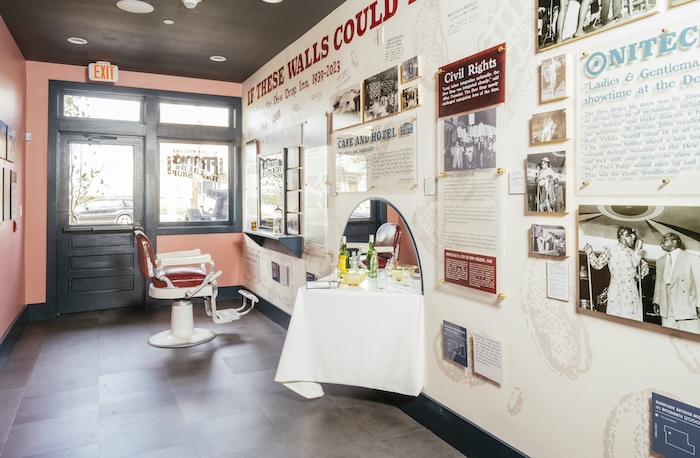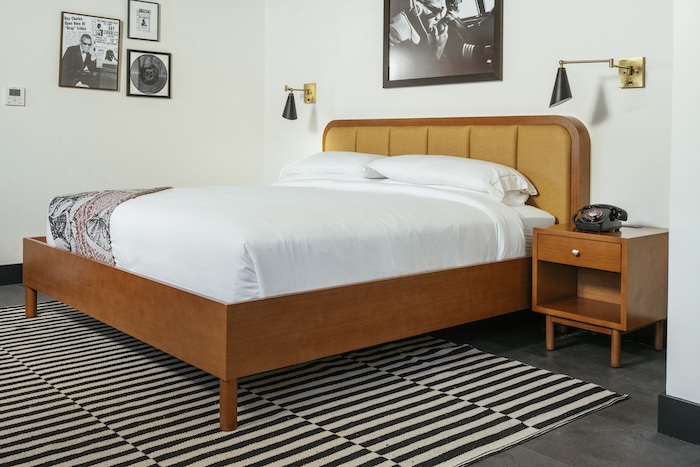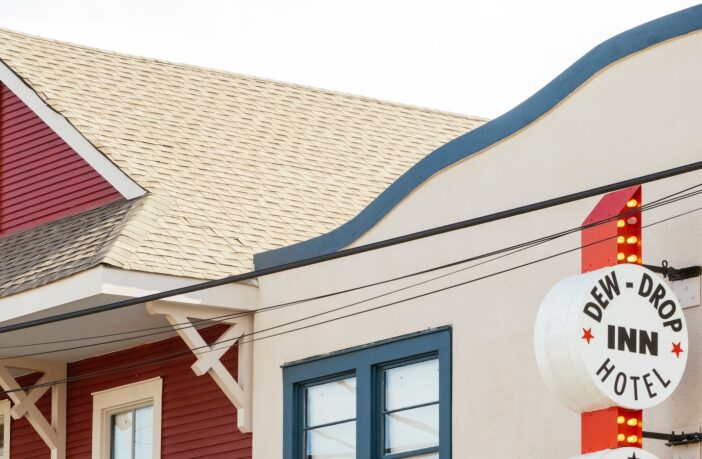Last December, the Dew Drop Inn, a legendary New Orleans cultural landmark, was restored to its former glory as one of the country’s most historically significant music venues and boutique hotels. New Orleans native Curtis Doucette Jr., led by his passion for historical Black culture and music, acquired the dilapidated space in 2021 and spent three years restoring it.
From 1939 until the late 1960s, the Dew Drop Inn hosted some of the most iconic Black musicians of our time, legends like Aretha Franklin, Tina Turner, Ray Charles, Little Richard, Marvin Gaye and James Brown. The venue served as an incubator for the birth of new sounds like rhythm & blues and rock ‘n roll. It acted as a haven for LGBTQIA performers and symbolized the political fight for integration in America.
 Image: Rush Jagoe
Image: Rush Jagoe
Originally established as a barbershop and Black business hub by the late Frank G. Paina and located across from the Magnolia Housing Projects—which would later be home to rappers Juvenile, Lil Wayne and Soulja Slim—the Dew Drop Inn expanded to include both a premiere entertainment space and hotel in 1939. “If you name any of the greats from the ’50s and ’60s, they at least came through these doors,” said Doucette during a tour of the renovated space. “That was Black and white, actually, which was illegal at the time.”
In 1952, after being arrested for breaking the law of “serving Negroes and whites together,” Paina employed the help of the NAACP’s A.P. Tureaud and Ernest “Dutch” Morial to help prove that the limitations were unconstitutional, not only for himself but for all nightlife owners.
Later known as “The Groove Room,” the Dew Drop Inn also opened its doors to queer performers like Patsy Valdalia, the self-proclaimed “Toast of New Orleans,” who hosted an annual gay ball at the venue.

 Image: Rush Jagoe
Image: Rush Jagoe
“There were two things that contributed to the demise of this place,” Doucette explained. “One was integration and the other was the failing health of Frank.” Following Paina’s death in 1972, the club remained in his family’s ownership, but its popularity rapidly declined along with the building’s structure. After the devastation of Hurricane Katrina, the Dew Drop Inn was all but permanently destroyed.
In 2010, the New Orleans Historic District Landmarks Commission designated the building a historic landmark, but it would be another decade before Doucette, with the help of Paina’s grandson Kenneth Jackson, would restore the Dew Drop Inn to its original glory.
“I’ve had historians tell me that this may be the most important small music venue in the country, if not the world,” Doucette said. “It was important that we rebuild right here where the original bones and roots of this place were planted.”
Today, the Dew Drop Inn boasts 17 elegantly themed rooms that pay homage to the legendary acts who performed during its heyday, an exciting calendar of musical performances and a tribute to Paina’s entrepreneurial spirit with a staged inoperable barbershop that acts as a museum of the venue’s storied history.



